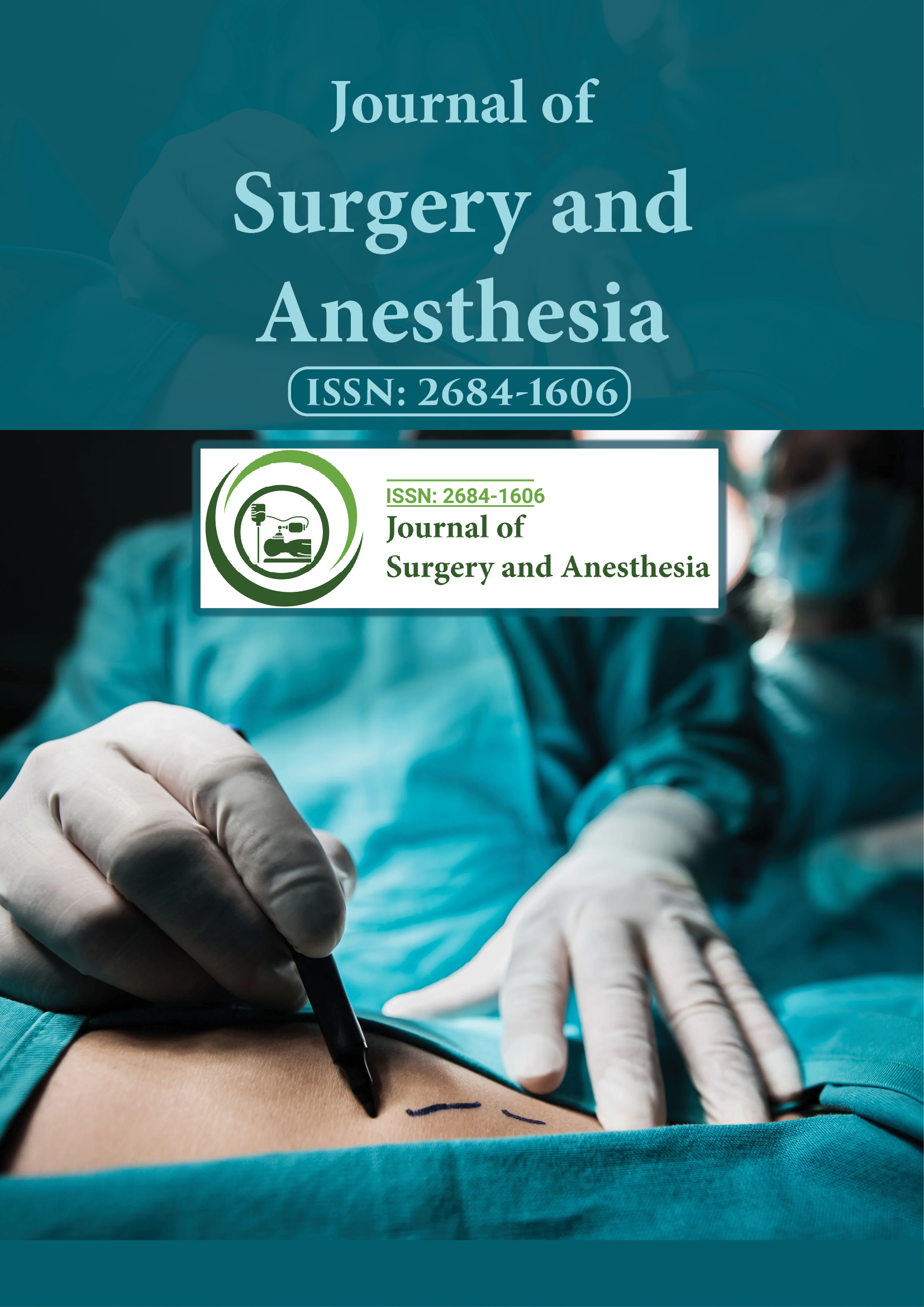Indexed In
- Google Scholar
Useful Links
Share This Page
Journal Flyer

Open Access Journals
- Agri and Aquaculture
- Biochemistry
- Bioinformatics & Systems Biology
- Business & Management
- Chemistry
- Clinical Sciences
- Engineering
- Food & Nutrition
- General Science
- Genetics & Molecular Biology
- Immunology & Microbiology
- Medical Sciences
- Neuroscience & Psychology
- Nursing & Health Care
- Pharmaceutical Sciences
Opinion Article - (2022) Volume 6, Issue 4
Evaluation and Impact of Acute Post-Operative Chronic Pain after Surgery
Katrina Burcu*Received: 27-Jun-2022, Manuscript No. JSA-22-17846; Editor assigned: 30-Jun-2022, Pre QC No. JSA-22-17846 (PQ); Reviewed: 14-Jul-2022, QC No. JSA-22-17846; Revised: 21-Jul-2022, Manuscript No. JSA-22-17846 (R); Published: 28-Jul-2022, DOI: 10.35248/2684-1606.22.06.181
About the Study
Acute postoperative pain is a pain which is felt just after surgery and typically lasts for days or even weeks, and is completely normal and anticipated. Also, this pain is fairly typical and essential for wound healing, where tissues and muscles mend themselves after injury. The surgical incision and the surrounding area may be irritated and sensitive. After surgery, most patients experience some discomfort, especially in the first 48 hours, and it's usual to experience pain for several weeks. Pain that lasts for longer than three months is typically considered as chronic pain. The term "chronic or persistent postsurgical pain" is frequently used to describe persistent pain that results from surgery. About 10%-60% of patients who have surgery will ultimately develop this chronic pain. Fortunately, it is a problem that is typically un-treatable and will usually go away on its own. Many times, pre-existing medical conditions that make a person more sensitive to pain can make post-surgical consequences (such as nerve damage, tissue damage, scar tissue formation, and infection) worse. Sometimes it is very difficult to distinguish between the aches, especially if the surgery did not alleviate the original pain that it was performed to cure. The type of pain is completely depending on the operation itself, as the painful symptoms are frequently connected to the distribution of nerves in the area of the operation. People have complained that pain in the testicles or down the front and inside of the leg after groin hernia repair surgery. This may be related to the possibility of groin nerve irritation after surgical hernia treatment. We now have a better understanding of the "neuropathic pain" that can result from nerve damage. Neuropathic pain is frequently characterized by a stabbing, tingling, numbness, altered sensations, and sensitivity issues. It is not always possible to prevent nerve damage during surgery, particularly when treating cancer, where removal of the tumor takes priority.
The treatment strategy is centered on two things one is by controlling the pain with medications and the other medical interventions and addressing any accompanying health issues for people with chronic postoperative pain. To ensure long-lasting alleviation, a diversified approach is required. Approximately 30% of patients experience chronic pain after surgery, also it may range from mild symptoms to severe pain. In general, only 5% of people suffer extreme intensity pain, but this 5% is a substantial percentage when considering by the enormous number of surgeries performed around the world. Painkillers may be administered right away following surgery through a catheter that is already in place. For instance, opioid (narcotic) medicine administered by intravenous catheter and a local anesthetic administered through the epidural catheter in the lower back are two methods of managing postoperative pain.
The anesthesiologist is responsible for controlling or managing every patient's pain before, during, and after surgery. A regional anesthesiologist or pain physician, who specializes in utilizing local anesthetics to suppress pain sensations in a specific location of the body, may be consulted by a surgeon. These experts can suggest solutions like a local block that numbs the area. Science has established that persistent, low-grade inflammation can become a silent killer that aggravates Type 2 diabetes, cancer, cardiovascular disease, and other illnesses. Try to avaoid the opioid painkillers and limit the usage of opioid medications.
Citation: Burcu K (2022) Evaluation and Impact of Acute Post-Operative Chronic Pain after Surgery. J Surg Anesth. 6:181.
Copyright: © 2022 Burcu K. This is an open-access article distributed under the terms of the Creative Commons Attribution License, which permits unrestricted use, distribution, and reproduction in any medium, provided the original author and source are credited.
